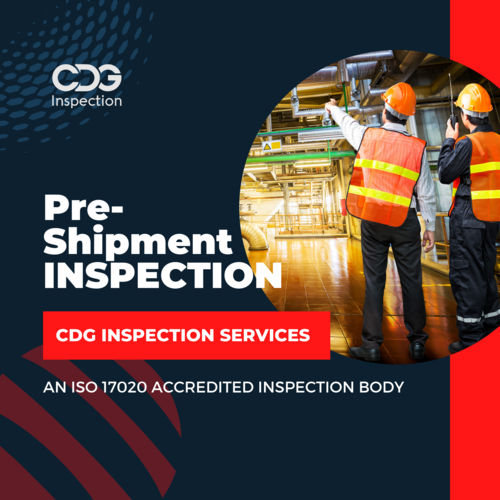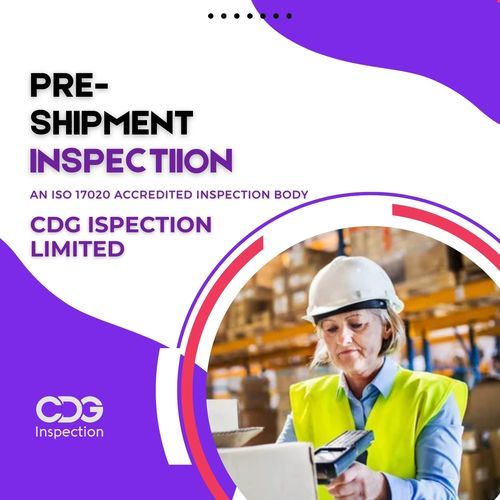Pre -Shipment inspection in Raigarh
Product Details:
Product Description
CIL Provides Accredited Pre-Shipment Inspection Services in Raigarh, Chattisgrah, India. CIL is an ISO 17020 accredited inspection body. Pre Shipment inspections are guided by sampling. Sampling occurs when the material is 100 percent produced and 80 percent packaged for shipment. The principle of this type of inspection is to draw conclusions on the conformity of the batch from the results obtained on a sample rather than inspecting 100 percent. The sample size is chosen to be statistically representative of the total quantity and the individual units inspected are randomly selected by the third party inspector. This quality control is the last opportunity to take the necessary corrective actions before shipping. When defective products are identified, they are either sorted or reworked so only compliant products are shipped.The Pre Shipment Inspection Precedent, Pre shipment inspections are increasingly used and required because of an agreement to improve international trade standards under the General Agreement on Tariffs and Trade amended by the World Trade Organization. In international trade, third party pre shipment inspection services may be required to adhere to a letter of credit. When companies deal with foreign suppliers, a letter of credit is often created to protect the monetary interests of the buyer, ensuring that the products are as ordered before the bank releases the funds from the selling company. Qualification of a Pre Shipment Inspector, The pre shipment inspector carrying out the inspection should have the required educational qualifications along with technical expertise. The inspector should also have several years of experience in this field. Procedure of Pre Shipment Inspection, Although the process may change from one company to another, however, there are some common areas of work that you need to consider when you hire the services of an inspection company. Following are the areas concerned, Importer or exporter will be referred to as the applicant company. The applicant fills up the form for inspection online or sends a hard copy of the form. The applicant needs to submit the inspection cost once the offer is accepted. The inspection company informs the exporter regarding the date and time when the inspection will be carried out. The inspector collects the sample for the inspection. On completion of the inspection, the inspector submits his report. A Pre shipment Inspection (PSI), also called Final Random Inspection (FRI), is an effective tool to protect buyers against costly import risks. It is used to ensure the quality, quantity, and documentation match the buyers requirements before goods are shipped. A pre shipment inspection will determine if there are any defective products in a batch and ensure that the products meet the quality and safety requirements of the target market. It provides the necessary results for deciding if the lot can be accepted or not before shipping. Examining products and documents and determining compliance with required standards avoids customs problems, reduces delays, and prevents defective products from reaching the customer

Price:
- 50
- 100
- 200
- 250
- 500
- 1000+








